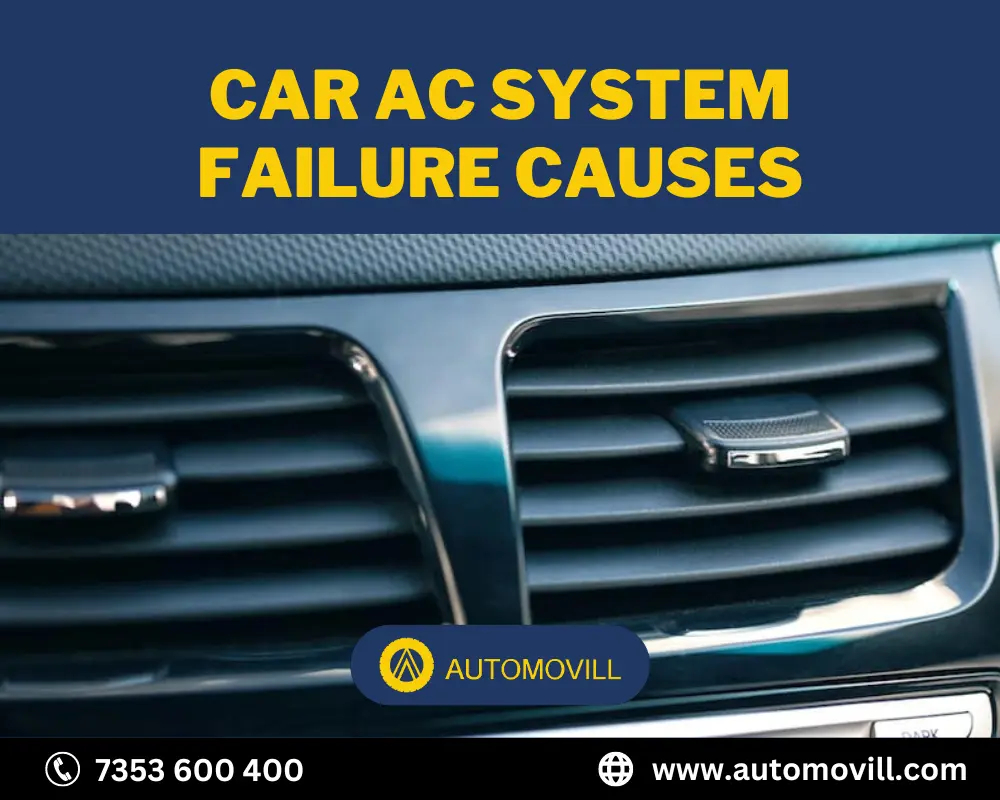
During the hot summer months, a well-functioning car air conditioning (AC) system is essential for a comfortable driving experience. However, one frustrating issue that car owners may encounter is the AC system tripping, which affects the cooling process and leave them uneasy in the heat.
In this blog, we will know the common causes of car AC failure and discuss potential solutions to resolve the issue and keep your car’s AC system running smoothly.
8 Car AC Failure Causes
Here we go:
1. Refrigerant Leakage (Freon)
This is the most common cause of AC failure. The AC system in a car relies on refrigerant (such as R134a) to cool the air. If there is a freon leak in the system, there will be a loss of cooling performance. If you notice any symptoms of freon leak in the car such as unusual sounds, bad smell, or warm air, then that could be dangerous.
2. Compressor Failure
The AC compressor is responsible for pressurizing the refrigerant and circulating it through the system. If you notice any symptoms of car AC compressor failure like strange noises, warm air, etc. then there is the possibility that the AC compressor is faulty. It can result in a lack of cooling performance or complete AC system failure.
3. Electrical issues
The AC system in a car has various electrical components, such as relays, switches, and motors, that control its operation. If any of these components fail, it can result in AC system failure.
4. Clogged Condenser Coil
The condenser and evaporator are crucial components of the AC system that help remove heat from the refrigerant. If they become clogged with dirt or dust, then it can reduce the cooling performance of the AC system or cause it to fail.
5. Blower Motor Failure
The blower motor is responsible for circulating the cooled air into the cabin of the car. If you feel the lack of air in the car, it is because of a fault in the blower motor.
6. Expansion valve
The expansion valve regulates the flow of refrigerant in the AC system. If it becomes clogged or fails, the performance of the AC will be affected.
7. AC Belt Issue
The AC system in a car is connected to the crankshaft of the engine through belts and pulleys. If the belts become loose, or broken, it can affect the operation of the AC system.
8. Broken Or Clogged Radiator
Yes, broken or clogged radiators can also affect AC performance. However, there is no direct connection between the radiator and the AC system, but there is an indirect connection through the engine’s cooling system. The radiator helps regulate the engine’s temperature, and if the radiator is broken or clogged, it can lead to engine overheating.
In response, the vehicle’s engine management system might reduce power output to prevent further overheating. This reduction in power can indirectly affect the AC system’s performance. If the clogged radiator issue is not addressed for a long time, it could also make your AC fail.
9. General Wear and Tear
Over time, the AC system components can experience normal wear and tear, leading to inefficient cooling.
It’s important for you to understand that diagnosing and fixing problems with an AC system can be challenging and require the expertise of an experienced technician.
It is advised to get the AC system in your car examined and repaired by a certified automotive mechanic if you feel it has failed or has inefficient cooling.
